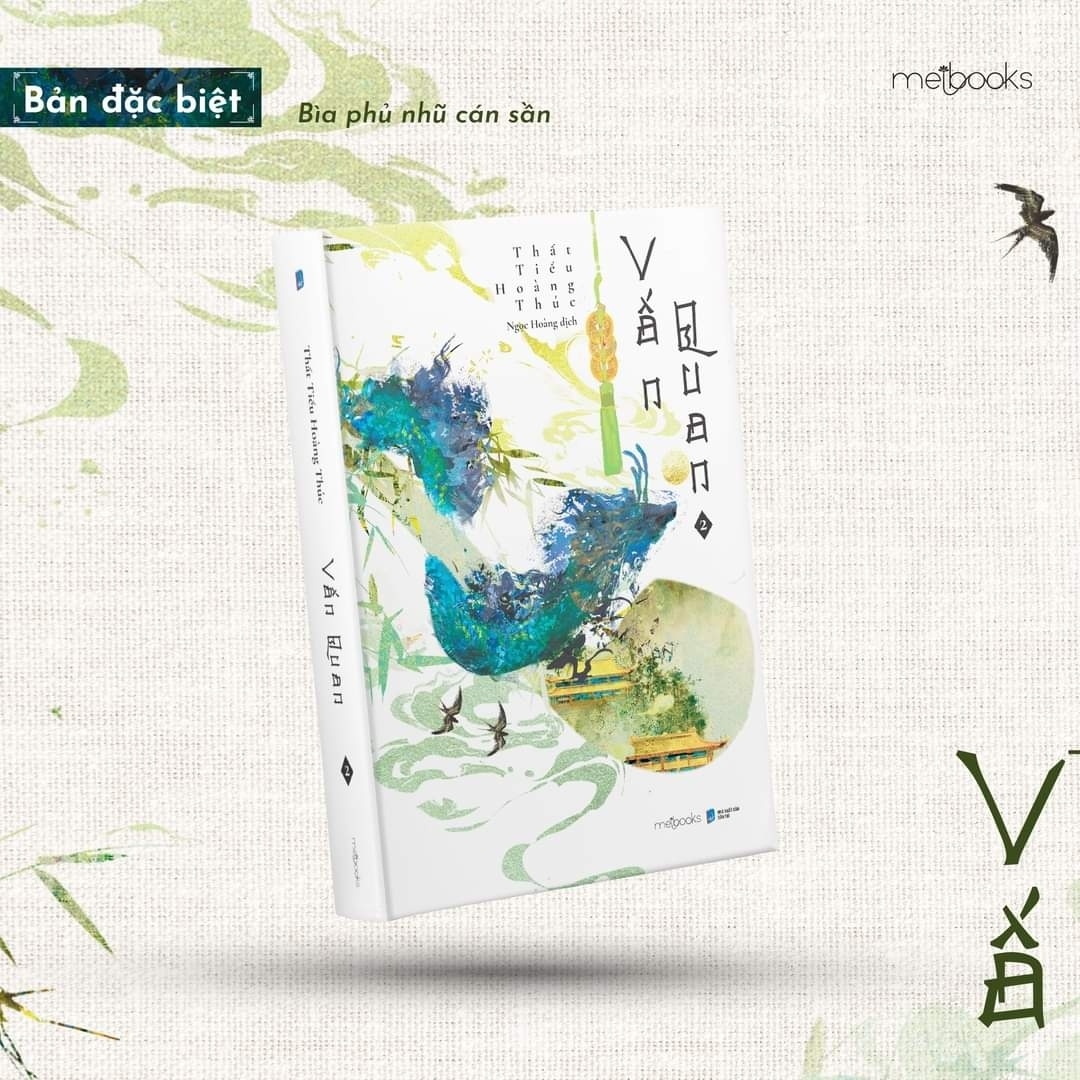There's a popular saying that nine out of ten Republican Era stories end in tragedy. Miss Mu and Her Pet Canary (穆小姐与金丝雀, pinyin: mu xiaojie yu jin si que) is that elusive tenth. I went into this novel not quite sure what I would be getting (there's not really a formula for happy Republican Era romances as such), and I'm glad I did, because it's definitely a serious contender for 'best baihe novel I read this year'.
The novel is set in the mid- to late-1920s, in the fictional city of Wenjiang (which has Shanghai vibes). The protagonist is Mu Xing, the titular Miss Mu. Mu Xing comes from a prominent upper-middle-class family, who are fairly progressive for the time. They're also the type of family who are known for philanthropy and good works rather than being absolutely filthy rich (in MDZS terms: think the Lans, rather than the Jins). Her father is a doctor, and both Mu Xing and her older male cousin Mu Yun have just returned from studying abroad in the US, where they both graduated with medical degrees. The path in front of Mu Xing seems clear: she'll marry her fiance Song Youcheng (a childhood friend whom she became engaged to shortly before she went abroad, more because they get on well and are a suitable match age- and status-wise rather than because they're in love), and practise as a doctor at the Mu family's charitable clinic.
An important thing to know about Mu Xing is that she's always been a tomboy, and now that she's grown up, she sees no reason to stop dressing in men's clothes (she does wear women's clothes as well, but does clearly enjoy being out and about in men's clothes). Her friends, old acquaintances and the businesses she patronises regularly know that she's 'that Miss Mu who likes running about in men's clothes'. People who meet her for the first time, however, are likely to mistake her for a man. This sets up her first encounter with her eventual love interest Bai Yan.
Bai Yan is a courtesan indentured to one of the higher-class brothels in the city. At the start of the novel, she's on the prowl for a rich, young, single, credulous man whom she can talk into buying out her indenture, establishing her in a home of her own, and potentially even marrying her. She had been cultivating a suitor called Young Master Cui, but at the start of the novel, she discovers that his father has cut him off from the family funds and arranged for him to marry a young woman from an appropriately wealthy family. Bai Yan decides to break things off with him — but not before she talks him into buying her a load of fancy jewellery as a parting gift (he doesn't know, at the time, that she intends this as a parting gift, being credulous enough to believe that Bai Yan will be wiling to carry on a relationship with him after his marriage). In a masterstroke, she even talks him into buying her farewell gift to him, a pair of cufflinks. Mu Xing, in her young man about town guise, bumps into them at the jeweller's, works out instantly what is going on, and is immediately and deeply impressed by Bai Yan's consummate skill at manipulation.
Mu Xing then makes the acquaintance of a rich young gentleman, a new arrival to Wenjiang, named Tang Yu, who believes her to be a man (Mu Xing doesn't disabuse him of this). The young men of Tang Yu's social circle are a somewhat more hedonistic bunch than Mu Xing is used to, and frequently engage the services of courtesans. It's in this context that she meets Bai Yan again — who, of course, comes to know her as 'Young Master Mu'. It's from here that their relationship unfolds. Mu Xing is initially fascinated by Bai Yan, who's obviously very different from her usual circle of acquaintances. Bai Yan, for her part, decides that the young, earnest, unattached, wealthy 'Young Master Mu' is the perfect target for her.
( some spoilers; mention of suicide )
I read the Chinese original of the novel here on JJWXC. To my disappointment, the author seems to have stopped writing completely, and this is her only complete full-length baihe novel. I am looking forward to getting stuck into the full-cast audiobook of the novel, especially since they had the good sense to cast Hei Zhi Shao in the role of Mu Xing.
The novel is set in the mid- to late-1920s, in the fictional city of Wenjiang (which has Shanghai vibes). The protagonist is Mu Xing, the titular Miss Mu. Mu Xing comes from a prominent upper-middle-class family, who are fairly progressive for the time. They're also the type of family who are known for philanthropy and good works rather than being absolutely filthy rich (in MDZS terms: think the Lans, rather than the Jins). Her father is a doctor, and both Mu Xing and her older male cousin Mu Yun have just returned from studying abroad in the US, where they both graduated with medical degrees. The path in front of Mu Xing seems clear: she'll marry her fiance Song Youcheng (a childhood friend whom she became engaged to shortly before she went abroad, more because they get on well and are a suitable match age- and status-wise rather than because they're in love), and practise as a doctor at the Mu family's charitable clinic.
An important thing to know about Mu Xing is that she's always been a tomboy, and now that she's grown up, she sees no reason to stop dressing in men's clothes (she does wear women's clothes as well, but does clearly enjoy being out and about in men's clothes). Her friends, old acquaintances and the businesses she patronises regularly know that she's 'that Miss Mu who likes running about in men's clothes'. People who meet her for the first time, however, are likely to mistake her for a man. This sets up her first encounter with her eventual love interest Bai Yan.
Bai Yan is a courtesan indentured to one of the higher-class brothels in the city. At the start of the novel, she's on the prowl for a rich, young, single, credulous man whom she can talk into buying out her indenture, establishing her in a home of her own, and potentially even marrying her. She had been cultivating a suitor called Young Master Cui, but at the start of the novel, she discovers that his father has cut him off from the family funds and arranged for him to marry a young woman from an appropriately wealthy family. Bai Yan decides to break things off with him — but not before she talks him into buying her a load of fancy jewellery as a parting gift (he doesn't know, at the time, that she intends this as a parting gift, being credulous enough to believe that Bai Yan will be wiling to carry on a relationship with him after his marriage). In a masterstroke, she even talks him into buying her farewell gift to him, a pair of cufflinks. Mu Xing, in her young man about town guise, bumps into them at the jeweller's, works out instantly what is going on, and is immediately and deeply impressed by Bai Yan's consummate skill at manipulation.
Mu Xing then makes the acquaintance of a rich young gentleman, a new arrival to Wenjiang, named Tang Yu, who believes her to be a man (Mu Xing doesn't disabuse him of this). The young men of Tang Yu's social circle are a somewhat more hedonistic bunch than Mu Xing is used to, and frequently engage the services of courtesans. It's in this context that she meets Bai Yan again — who, of course, comes to know her as 'Young Master Mu'. It's from here that their relationship unfolds. Mu Xing is initially fascinated by Bai Yan, who's obviously very different from her usual circle of acquaintances. Bai Yan, for her part, decides that the young, earnest, unattached, wealthy 'Young Master Mu' is the perfect target for her.
( some spoilers; mention of suicide )
I read the Chinese original of the novel here on JJWXC. To my disappointment, the author seems to have stopped writing completely, and this is her only complete full-length baihe novel. I am looking forward to getting stuck into the full-cast audiobook of the novel, especially since they had the good sense to cast Hei Zhi Shao in the role of Mu Xing.
 The second volume of the Vietnamese edition of Reading the Remnants (问棺, pinyin: wen guan) by Qi Xiao Huang Shu (七小皇叔), published by Meibooks, will be available for pre-order from this Saturday (1 June). Purchase links for this volume and the first volume can be found
The second volume of the Vietnamese edition of Reading the Remnants (问棺, pinyin: wen guan) by Qi Xiao Huang Shu (七小皇叔), published by Meibooks, will be available for pre-order from this Saturday (1 June). Purchase links for this volume and the first volume can be found  Qi Xiao Huang Shu, the author of Reading the Remnants (问棺, pinyin: wen guan),
Qi Xiao Huang Shu, the author of Reading the Remnants (问棺, pinyin: wen guan),  Pre-orders opened today for the contemporary baihe novel Evening Tide (晚潮, pinyin: wanchao) by Qi Xiao Huang Shu (七小皇叔), author of the hit tomb-raiding baihe novel Reading the Remnants (问棺 , pinyin: wen guan). This is the second in her recent (also massively popular) trilogy of novels focused on the lives and loves of a group of audio drama voice actresses. The main pairing in Evening Tide consists of Xiang Wan, a newcomer to the audio drama scene who has time-travelled to the twenty-first century from imperial China (it makes a sort of sense in context), and Chao Xin, a veteran voice actress.
Pre-orders opened today for the contemporary baihe novel Evening Tide (晚潮, pinyin: wanchao) by Qi Xiao Huang Shu (七小皇叔), author of the hit tomb-raiding baihe novel Reading the Remnants (问棺 , pinyin: wen guan). This is the second in her recent (also massively popular) trilogy of novels focused on the lives and loves of a group of audio drama voice actresses. The main pairing in Evening Tide consists of Xiang Wan, a newcomer to the audio drama scene who has time-travelled to the twenty-first century from imperial China (it makes a sort of sense in context), and Chao Xin, a veteran voice actress.